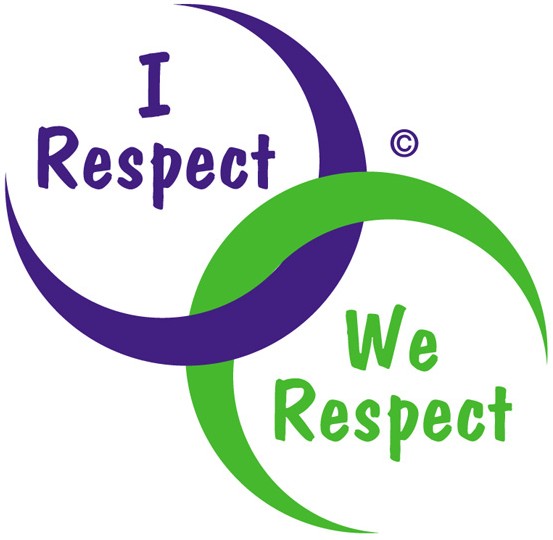
BusinessKnowHow by Paul Facella: If you’re a manager, supervisor, department head, senior executive, or business owner, it’s more important to be respected than to be loved. But here’s a secret: You can be both.
Being a well-loved boss isn’t about developing a cult of personality. In fact, you don’t have to have fantastic people skills to win over employees. What you do need is a commitment to make connection–real connection–with the people who work under you. That means getting to know their challenges, their work style, their stressors, and their role in the overall functioning of your company. It also means noticing them, acknowledging them, and listening to them.
Here are some tried-and-true ways to make that all-important connection with your staff and employees.
Be on the other end of the phone.
Start an ombudsman program.
Make friends–yes, friends–with coworkers.
Work alongside your front-line people.
Don’t get too big for your britches.
Stay conscious of your image.
Be in the thick of things.
Set an example.
Be consistent.
Being a Well-Loved Boss [BusinessKnowHow]
Category: People & Relationships

When people ask me, “What are key factors in having a prosperous business and happy life?” my answer always includes having a strong community of friends and colleagues.
Relationships are the cornerstone of our existence. We thrive by having interpersonal relationships, social and spiritual connections, and business affiliations. It is through our personal relationships we experience the sense of belonging and feelings of love (both sharing and receiving). Strong business relationships invite referrals resources, collaborations, strategic alliances, and masterminding.
Who’s in your circle of friends and colleagues? When you’re with them (in-person or virtually), do you feel energized, inspired, motivated, uplifted, understood?????
Qualities I look for in forging relationships:
* High integrity
* 100% responsibility who they are and what they do
* Altruistic
* Shared values
* Committed to personal growth
* Positive attitude
* Spiritually oriented
* Compassionate
* Strong communication skills
What qualities are important to you in your relationships?
What do you bring to your relationships?
I’ve been blessed to have a fabulous network of people. Years ago I began deliberately paying attention to people I met online, at networking events, and socially. Extending invitations to meet for coffee or chat on the phone was a great way to learn about people. Hosting my radio show opened further doors to meet people I admired and respected. Through social networking, joint ventures campaigns, and personal introductions, my circle has widened. Over the years, I have been fortunate to cultivate quality business relationships that have developed into strong friendships
I often ask folks in my circle and network, “Who do you know who might be great for me to meet? Would you willing to make an introduction on my behalf?” When I’m promoting a new product or event, having a strong network is invaluable.
If you work from home, isolation is one of the downsides. Be sure you’re engaged in activities to meet new people. You might even make it game to meet at least one new person each day or week!
Finally – if you wish to surround yourself with quality relationships, growing yourself as a person is a must. To attract great people, you must become the kind of person they want to hang out with!
Having great people in your lives to cheer you on, stimulate ideas, and hold you to your best will boost your strength and courage to say yes (and keep saying yes) to your desires and dreams.

Do you remember being told to use the “sandwich” technique when you needed to reprimand someone? Let me give you an example:
“Fred, I’m really pleased with how you’ve been progressing since you joined us and you’re doing a great job. However you’re not getting your reports in on time and we’re missing
deadlines. I’d like you to tighten up a bit on this. Anyway,thanks for all you’ve done so far and keep up the good work.”
Have you ever said something along these lines when managing your team? You probably needed Fred to sort out his reporting but you didn’t want to upset or demoralize him.
The only problem is that Fred may not get the message and the importance of it may be seriously diluted.
He may hear it as, “Fred, you’re doing a brilliant job, you just need to sort out the reporting bit but it’s not really that important.”
What happens then is, Fred continues to fail with his reports.
The “sandwich” technique doesn’t work, it lets you off the hook and it’s mealy mouthed. Be direct when managing your people and they’ll respect you more for it. You are also much more likely to get a change in behavior.
If you’re unhappy with some aspect of an employee’s performance then you need to tell them so. The skill is in doing it in a way that’s effective and doesn’t lower the morale of the individual.
Firstly, it’s not acceptable to speak to your people just when you’re unhappy about something. Tell them the good news as well. As Kenneth Blanchard and Spencer Johnson say in their book The One Minute Manager – “Catch people doing something right” and tell them about it.
Some managers and employers still have this strange notion that if people are doing things right then that’s what they’re paid for and they don’t need to be complimented.
Ask almost any employee in Industries throughout the world and they’ll tell you that they don’t feel appreciated by their manager.
When you notice someone doing something you do like, tell them about it. When you notice them doing something you don’t like, tell them about it. Whether it’s good news or bad, the same rules apply.
Do it as soon as possible. Acknowledgment of a job well done is not much good six months later. Also, if you don’t immediately call someone’s attention to something you are not happy about, then they’ll assume it’s okay. Either that or they’ll think you didn’t notice or you don’t care.
Do it in private. Why is it that some managers still feel it’s okay to reprimand someone in front of their colleagues? Even the mildest rebuke can have a negative effect on morale.
When you speak to the person use “I” messages. Say things like “I liked the way you did that” or “I think there is another way to do that.” Avoid “You” messages such as “You’re doing great.” That can come across as patronizing or insincere. “You’re doing that all wrong” may cause conflict, lower morale and may not sort the problem.
When your giving feedback, focus on one or two things. You’ll only confuse the person if you run off a whole list of attributes or misdemeanors. Be specific about job behavior, focus on what the person did or didn’t do, don’t make a personal attack.
Allow time for the message to sink in and allow the person to respond. You can then seek agreement as to what will happen in the future. If the person does not agree to take
corrective action then you need to move to another level. When they do agree to take corrective action then make sure that you monitor it and give encouraging feedback.
Being direct with your people is better for you, better for them and better for you business, so save your “sandwiches” for lunchtime.
 Alan Fairweather, ‘The Motivation Doctor,’ is an International Speaker, Author and Business Development Expert. To receive your free newsletter and free e-books, visit: http://www.themotivationdoctor.com
Alan Fairweather, ‘The Motivation Doctor,’ is an International Speaker, Author and Business Development Expert. To receive your free newsletter and free e-books, visit: http://www.themotivationdoctor.com

I’m incredibly blessed to have developed wonderful business relationships and friendships. I can’t imagine who I would be or what my life would be like without them when I need business advice, feedback, to vent, a hug, a cheer, or a kick in the pants.
I’m a believer that the outside world is a reflection of the person we become on the inside. On days, when I am not at my best and feeling a bit low, I think of the people in my life who like hanging out with me in business or in my personal life. I realize if the people I enjoy, love, admire, and respect as high quality people want to be with me, well, what does that say about me, huh? My mood begins to lift and my thoughts shift. It’s a great reality check!
It takes time to develop trust and safety with folks.
The 10 qualities below are personal values I bring to my relationships and ones I look for in others.
1. Authenticity. Being real and genuine (as much as possible). Willingness to be vulnerable and let go of the need “to look good” in all situations invites opportunities to make a heart connection. In truth, we’re not always are our best and being human invites others to be real and genuine. When I’m in conversation with someone who is only sharing from their head, I have no sense of who they are because I can’t feel them anywhere!
2. Listening and communications skills. Who doesn’t want to feel heard and understood?Having the ability to express thoughts and feelings creates connection. Becoming a great listener and communicator is an art; one that can be developed without having to be perfect. Refer to a prior post I wrote on The Art of Listening.
3. Forgiveness. Making it ok to be human. I have put my foot in my mouth on many occasions and been forgiven. We all screw up sometimes and knowing that our human choices (yup I said choices) and mistakes will not cost us love and acceptance is a huge builder of trust and safety.
4. Unconditional love/acceptance. That’s what our children and animals teach us! Being loved and accepted for who we are is a normal and human desire we all want. Our individual viewpoints, experiences, passions… add richness and flavor to relationships (and the world). When we can offer unconditional love and acceptance to others we share a great gift that can be nurtured and passed on. That is how we serve others to heal and grow. Love is our natural state! Being forgiven has taught me how to forgive others; to look beyond the action or comment and see who that person is – someone just like me who wants to be loved and accepted.
5. 100% responsibility. Letting go of the blame game and fully owning thoughts, words, and actions. This is about being in personal integrity in how we show up and making amends when appropriate. Folks in my circle know that if it’s my stuff, I’ll own it and clean up anything I’ve created to the best of my ability. Red flags go up for me when I see folks play the blame game and pass the buck.
6. Not taking everything personally. This is an advanced skill to be able to hear and experience people from a charge neutral space with compassionate detachment. As a coach, therapist, and counselor, being able to step back without personalizing is a skill I’ve honed over the years. Having a strong self-image and sense of self are critical elements in being able to de-personalize. Being hungry, angry, lonely or tired can make it harder to stay in a loving space with people without reacting. Keeping self-care a priority is important!
7. Aligned values. Spiritual growth, personal transformation, communication, integrity are some of my core values. The people closest to me all share a common value of personal growth/life-long learning. Being with people who share personal, business, life values can feel like connecting with kindred spirits!
8. Compassion/empathy. Loving appreciation and understanding without judgment or criticism. Being thoughtful and caring invites the love of our soul to emerge. Ties right back to #4.
9. Supportive. People feel supported in different ways. Communicating what we need to be supported is the way we teach people how to show up for us. Building a strong community of people who nurture, energize, and lift us (whether we need a boost or not!) invites us to be authentic.
10. Managing conflict. This is a biggy for many folks. When people show up to work through the conflict by taking responsibility for their part, de-personalizing, being honest, making amends if necessary…. many of the points I’ve written about already, real trust and safety flourishes. We want to know that when things get tough and uncomfortable, folks will stick around and not leave us! Read my post – A Model for Conflict Resolution.
What would you add on your list?
When you’re having one of those days when you’re not feeling great, look at the people in your life who hang out with you because they love you, respect you, and appreciate you. You might find remembering helps to broaden and lift your outlook!

Do you want a highly motivated team who don’t take time off work, don’t keep looking for other jobs and make a positive contribution to your business?
If the answer is “yes,” then there are three steps you need to take with each member of your team.
Step 1 – Spend some quality time
I didn’t say “quantity time” I said “quality time.” One or two minutes of quality time on a regular basis are far more productive than a one hour review every year. You need to get to know each member of your team better and they need to get to know you.
This will help you build a positive relationship with each team member. You’ll gain a much better understanding of them and how they’re handling the job.
It will also give the impression that you care about the individual and show that you’re there to help with problems both personal and business. Spending quality time will encourage opinions and ideas to flow from them and allows you to explain the company’s mission. It gives them a feeling of being in on things which is a huge motivator.
It will also help you build an “early warning system” of any problems both business and personal. Finally, it builds team spirit and morale.
Step 2 – Give feedback and coach
You need to regularly tell each member of your team when they’re doing well and when not so well. I read some recent research that suggested 65% of employees in the US received no recognition at work in the past year. My experience tells me that it’s much the same throughout the world and much worse in some countries. Some managers still believe – “why should I praise people when they’re only doing what they’re paid to do.”
If you want a happy and motivated team then you need to tell them when they’re doing well.
It’s also important to tell people when they’re not performing well. There are too many managers who either ignore poor behaviour or come down on the person like a ton of bricks.
There are particular ways to give feedback and coach and they’re described in detail in the book – How to get More Sales by Motivating Your Team.
Step 3 – Be a believer
We’re now getting into the area of “Empowerment” which was first introduced in the 1980’s and became a bit of a management buzzword. However, I believe that it’s one of the most promising but least understood concepts in team motivation today.
I’m a fairly down to earth practical sort of person (probably comes from my engineering background). I’m not big into motivation theories unless I can see the benefits for me – I see a great deal of benefit for managers and team leaders in Empowerment.
Empowerment is about utilising the knowledge, skill,experience and motivation power that’s already within your people.
The majority of people in teams and organisations throughout the world are severely underutilised. Your team have probably more to offer in terms of skill, knowledge and experience.
Put this to the test right away – implement these steps, motivate your team and achieve your business goals.
 Alan Fairweather, ‘The Motivation Doctor,’ is an International Speaker, Author and Business Development Expert. To receive your free newsletter and free e-books, visit: http://www.themotivationdoctor.com
Alan Fairweather, ‘The Motivation Doctor,’ is an International Speaker, Author and Business Development Expert. To receive your free newsletter and free e-books, visit: http://www.themotivationdoctor.com